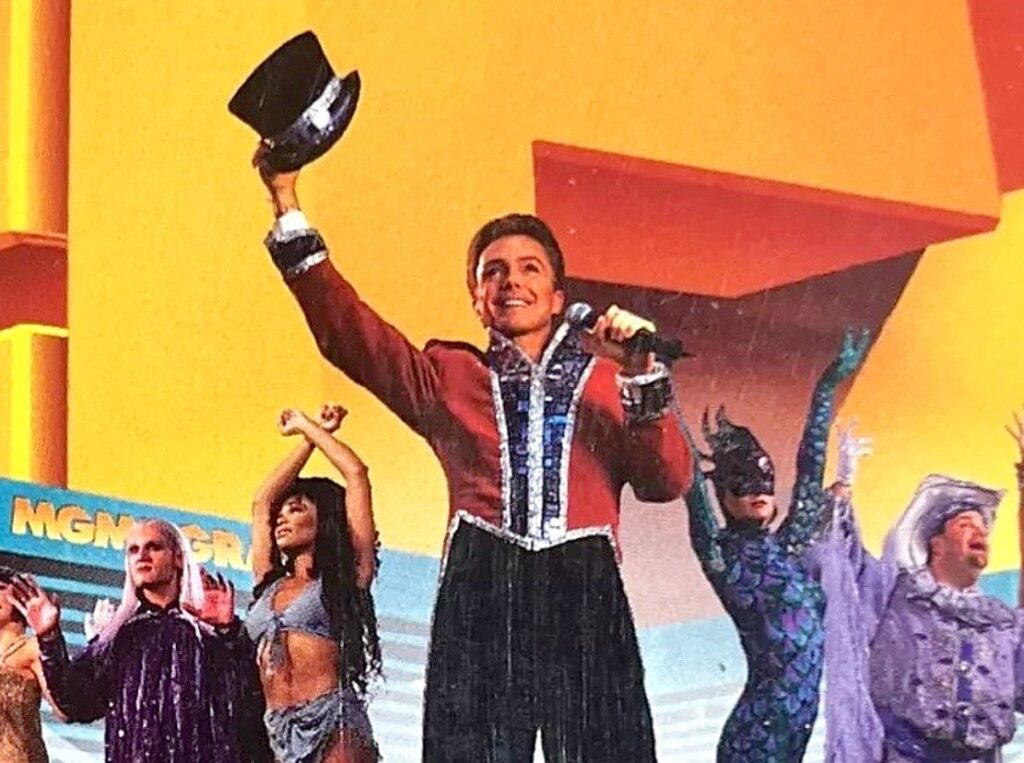Posted on: December 19, 2024, 02:13h.
Last updated on: December 19, 2024, 04:15h.
He’s remembered for his role as a teen idol in the 1970s sitcom “The Partridge Family.” But David Cassidy, who died in 2017, had a second act in Las Vegas that meant much more to him than being on a lunchbox.
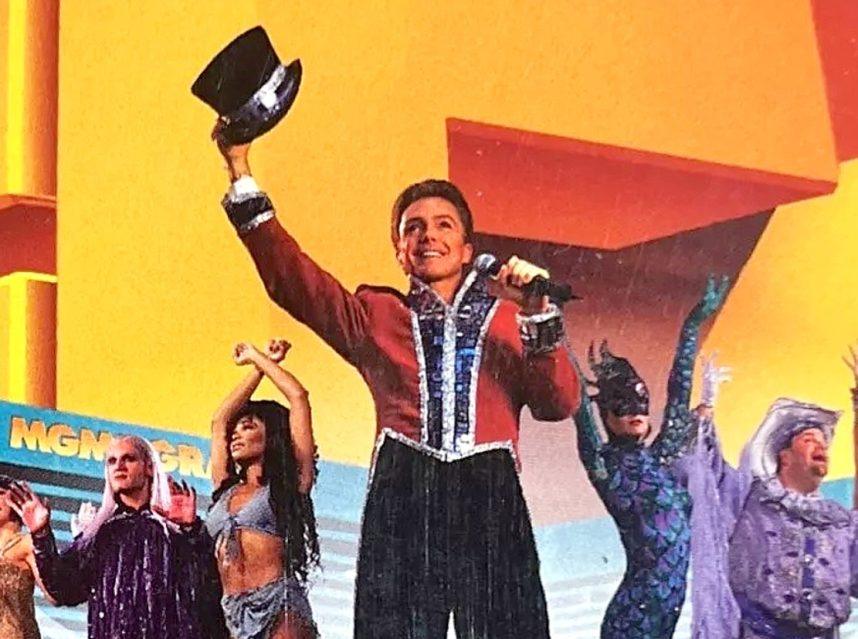
After declining ratings got “The Partridge Family” canceled by ABC in 1974, Cassidy continued the solo career he began while simultaneously portraying Keith Partridge on TV. But none of the three albums he released in 1975 and 1976 yielded a hit.
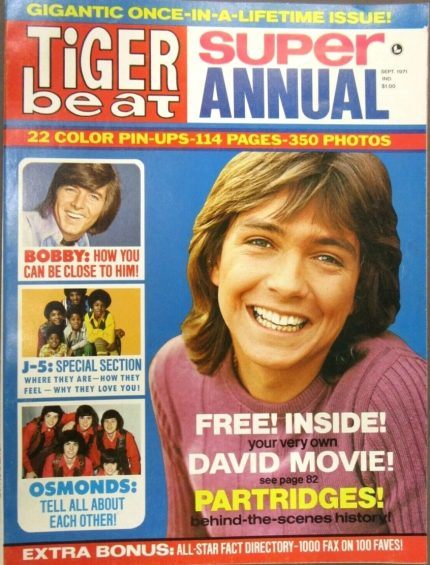
He tried landing other TV series, but his fading superstardom limited those opportunities. Cassidy found only guest-starring roles. After one, on a 1978 “Police Story,” got him nominated for an Emmy, NBC created a series based on it. But it canceled “David Cassidy: Man Undercover” after one season.
By the ’80s, Cassidy, then only in the 30s, was broke despite still being a household name.
“People presumed that it was a cakewalk for me,” he told this reporter in 2001. “The more famous and successful you become, the more out of fashion you can become, the harder it is to get over again.”
Enter Stage Left
Cassidy found more success, and enjoyment, returning to musical theater. (Before moving to LA to pursue TV stardom, the New York native made his professional debut in Broadway’s “The Fig Leaves Are Falling,” which closed after only four performances in January 1969.)
In 1982, Cassidy replaced another teen idol, Donny Osmond, in Andrew Lloyd Webber and Tim Rice’s Broadway production of “Joseph and the Amazing Technicolor Dreamcoat.”
He then appeared in the West End, London production of “Time” in 1987 and returned to Broadway in “Blood Brothers,” alongside his half-brother and fellow teen idol Shaun Cassidy, from April 1993 to June 1994.
“As much as I’ve enjoyed working in film and on television, when you play live in the theater … that instantaneous kind of connection you have with the audience is not something you can possibly experience (on film or tape),” Cassidy told the Las Vegas Sun in 2001.
Point Me in the Direction of … Vegas
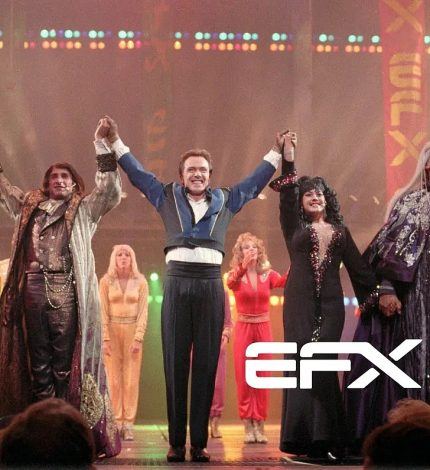
When the original star of the MGM Grand’s “EFX,” Michael Crawford, injured a hip in a rope-lowering accident, the show’s producers reached out to Cassidy, whose performance in “Blood Brothers” had impressed them.
One of the largest theater productions in the world, “EFX” wowed viewers more with its special effects than its thin plot, which had the main character time-traveling from ancient Egypt to King Arthur’s Camelot to the future.
But from November 1996 through December 1998, Cassidy’s name loomed just as large as the show’s did on the MGM Grand’s marquee and in its advertisements.
Citing the physically demanding nature of the show, Cassidy decided not to renew his contract for 1999. But he remained in Vegas to work in the theater (Henderson, specifically, where he lived with his third wife, Sue Shifrin, and their son, Beau, until 2003).
Cassidy produced and directed “The Rat Pack is Back,” which he co-created with Don Reo. This popular celebration of Frank Sinatra, Dean Martin, and Sammy Davis Jr. opened at the Desert Inn in 1999 and closed at the Sahara in 2002. Cassidy occasionally cameoed in it as Bobby Darin, singing “Mack the Knife.”
“It celebrates an era in our culture that I think is in some ways forgotten, particularly in Las Vegas, where corporations come in and blow a property up and there is no sense of history,” Cassidy told the Sun. “In a way, it has its own niche. It doesn’t compete with the fabulous productions of ‘O’ or ‘Mystere’ or the scale of that. It is what it is — a play with music that brings you into a world of 1961, when the world was freer and not as complicated.”
Though the estates of Sinatra and Davis Jr. sued the production, Cassidy dedicated ample time and resources to its defense and prevailed in court. The rights to “The Rat Pack is Back” were later purchased by producer Dick Feeney, who ran the show in Vegas through 2020.
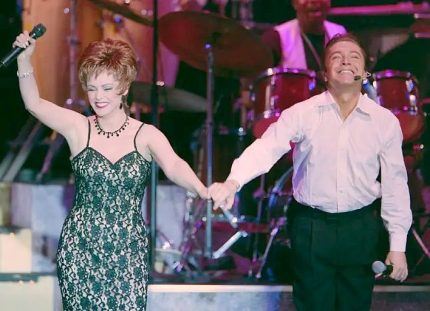
Next, Cassidy wrote and produced “At the Copa,” in which he appeared (alongside Sheena Easton) as Johnny Flamingo, a busboy who becomes a singing sensation. It ran from January 2000 to January 2001.
“I worked as a producer on two shows simultaneously and was also performing six nights a week,” Cassidy told the Sun. “At one point. I had 77 employees. I worked all day in the office, holding meetings and everything else, handling individual problems that would come up daily, trying to stay on top of all of it, and then going to work at night.
“I was pushing everything off to my one off day,” he explained. “It was just too much. I missed so much. When it started to become a problem was when I started missing my son’s baseball games.”
Final Act
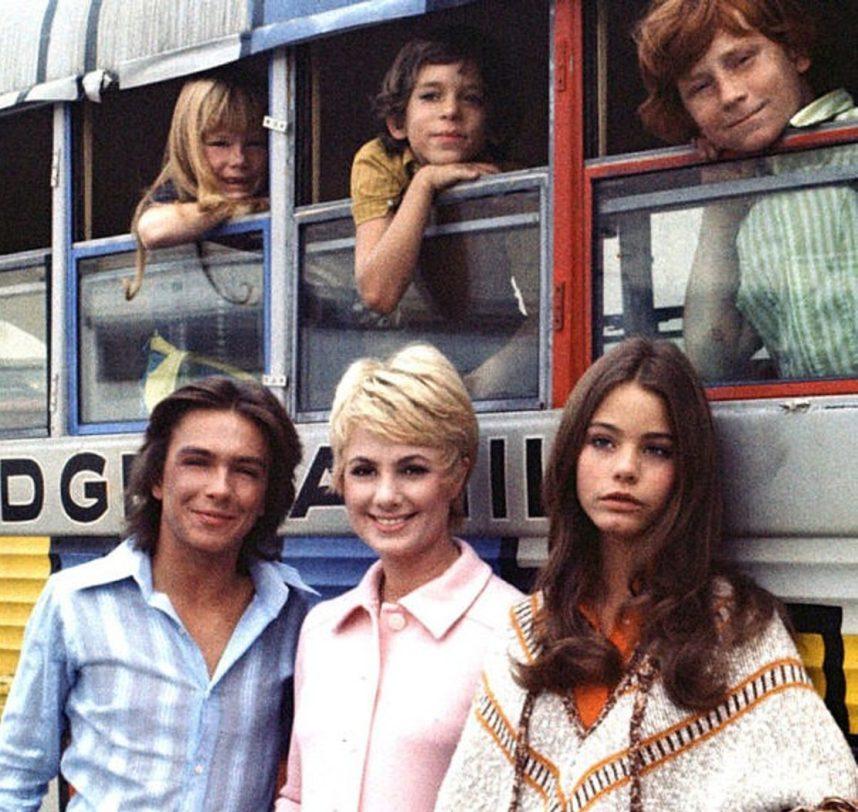
In 2003, Cassidy returned to Fort Lauderdale, Fla., his pre-Henderson home, and to performing concerts. He spent the rest of his life touring as a nostalgia act, playing mostly “Partridge Family” hits for the mostly female original fans of the ’70s TV show.
“I know how successful I am now as a result of being that successful then,” he told this reporter. “And I loved it. Although I’ve tried to creatively distance myself from it, because I wanted to be able to show the world what I could do beyond it, I’ve always loved it.
“It’s been a great ride, and I plan on riding it all the way out into the sunset.”
That sunset arrived after a performance in LA on Feb. 20, 2017. Cassidy had difficulty remembering his lyrics and fell off stage. When video of the incident went viral, he announced on the “Dr. Phil” show that he was retiring due to dementia, an early-onset variety of the disease battled by both his father, Broadway actor Jack Cassidy, and mother.
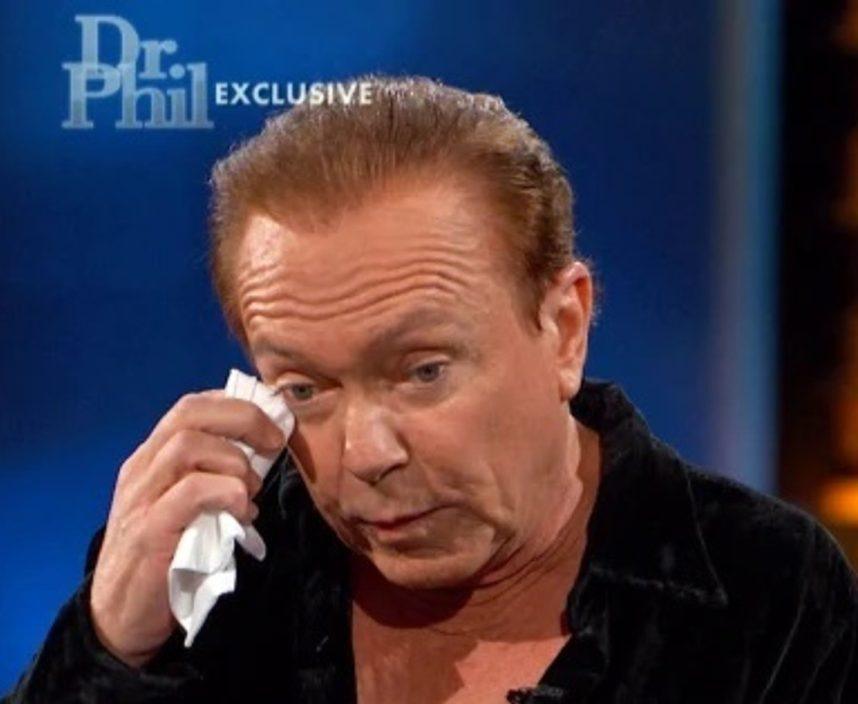
In a later phone conversation with an A&E producer, however, Cassidy admitted that his real medical problem was liver disease from alcohol poisoning.
Despite proclaiming that he had sobered up following three DUI arrests in the 2010s, he confided to the producer: “I lied about my drinking. You know, I did it to myself, man. I did it to myself to cover up the sadness and the emptiness.”
On Nov. 21, 2017, Cassidy died of liver failure while waiting for a transplant to become available. He was 67. According to his daughter, Katie Cassidy, his final words were “So much wasted time.”
“Lost Vegas” is an occasional Casino.org series spotlighting Las Vegas’ forgotten history. Click here to read other entries in the series. Think you know a good Vegas story lost to history? Email [email protected].



